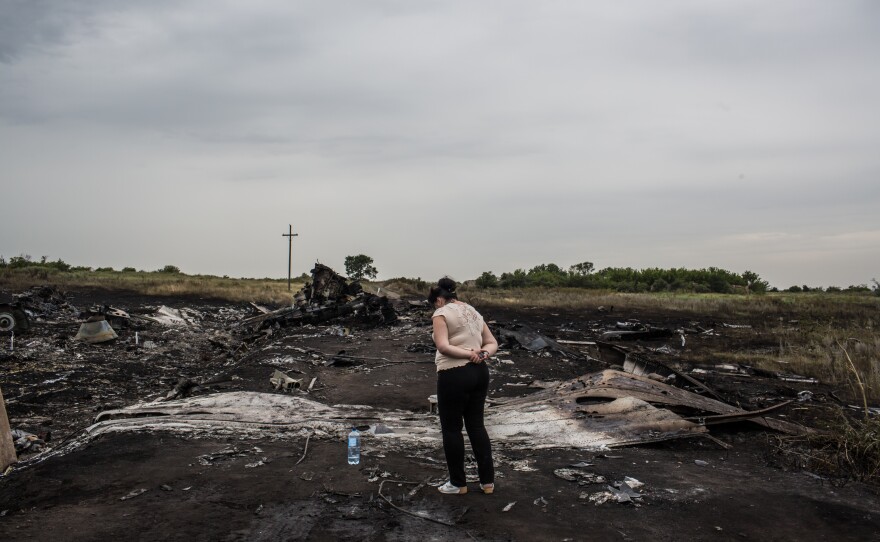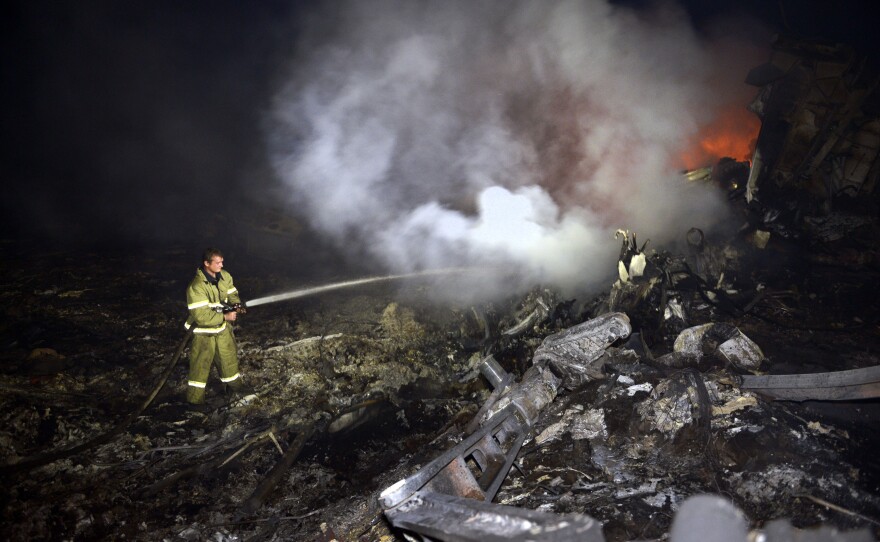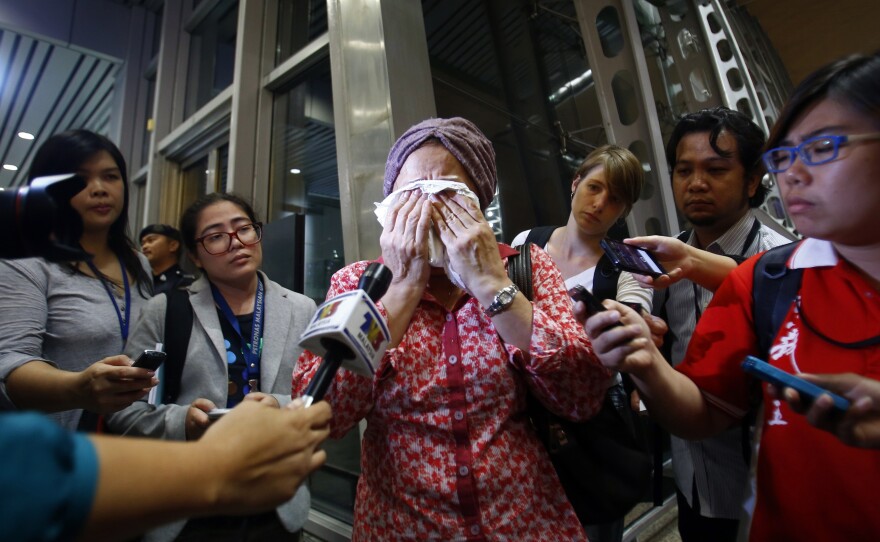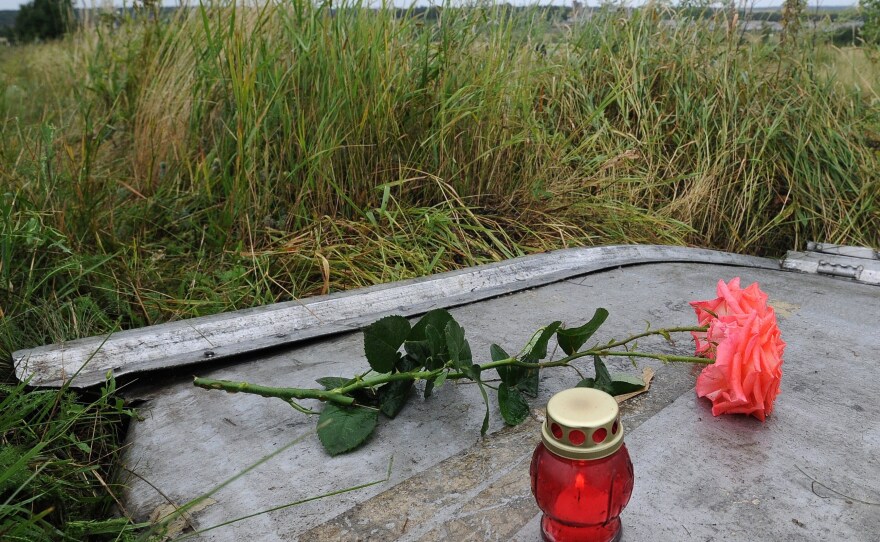



International investigators say armed rebels have limited their inspection of the eastern Ukraine site of the downed Malaysian Airlines flight.
Some two dozen observers from the Organization of Cooperation and Safety in Europe say they were only allowed into a small area of the crash site for just over an hour, according to the BBC. One OCSE member said the team was confronted by a "visibly intoxicated guard" who fired shots into the air.
Meanwhile, the crash site and debris, which spreads over miles of fields and farmland, are still unsecured and bodies lie exposed to the elements — some still strapped to seat belts and wearing inflight headphones, CNN reports.
"Most everything is unguarded, there for the curious — or for the taking," write CNN reporters Phil Black and Ben Brumfield. "There are so many of them. Bodies lie by the roadside, some in fields, some intertwined with parts of the aircraft. And they are spread out so far."
All 298 aboard the Boeing 777 were killed. Flight MH17 was flying from Amsterdam to Kuala Lumpur. It crashed in a rebel-held area near Donetsk, likely shot down by a surface-to-air missile, U.S. officials have said.
Securing evidence at the site is crucial to determining the exactly who and what caused the plane to fall from the sky. Workers also need to recover and identify the bodies, but the OCSE observers are not trained for that job and local emergency workers say it's not their job either.
National Transportation Safety Board and FBI teams are on their way to the country, NPR's David Schaper tells our Newscast desk. However, they are likely to find the same barriers as the OCSE officials, Schaper says.
They will have to travel 90 minutes down a pothole-ridden road from Donetsk, past checkpoints run by a number of different local militias, CNN says. No central command is in charge of the area, and virtually no rule of law governs there. At least three separatist groups guard the crash site.
As former NTSB Chairwoman Deborah Hersman tells NPR, "There are a lot of challenges here, I think chief among them is probably the war zone that they're in, and just the very nature what the people on the ground are facing."
The bodies are starting to bloat and decay and need to be recovered quickly, OSCE spokesman Michael Bociurkiw tells the Guardian. "We will keep coming back tomorrow and the next day and the next day."
Copyright 2014 NPR. To see more, visit http://www.npr.org/






